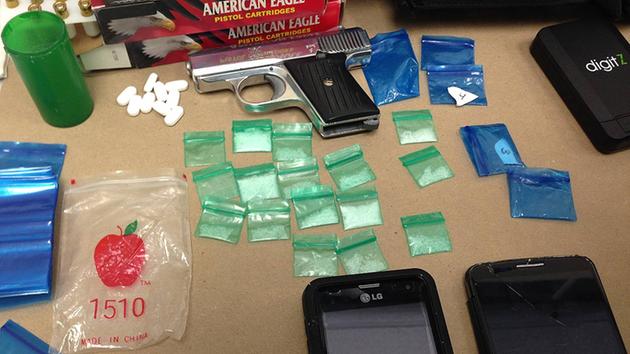Britain should scrap its war on drugs and focus resources on helping addicts, business tycoon Richard Branson and Lib Dem leader Nick Clegg have said. Highlighting research which shows no correlation between drug laws and drug use, the pair have called on British politicians to break the taboo on discussing alternatives to criminalisation of drug users.
Writing for the Guardian’s Comment is Free, Clegg and Branson slam the war on drugs as “an abject failure”. They highlight the £1 trillion spent globally since 1971 on trying to eradicate drugs, and the human cost, such as the 100,000 people killed in Mexico since 2006 thanks to drug gangs.
Yet one in three adults in the UK have taken illegal drugs at some point. One in six children aged 11 to 15 are taking drugs, and 2,000 people a year die in drug related incidents in the UK. The police stop and search half a million people a year for drug possession, and 70,000 peope a year are convicted for possession of drugs.
“This costs a lot of money, which could be better spent on treatment and on redoubling our efforts to disrupt supply,” Clegg and Branson say, adding “As an investment, the war on drugs has failed to deliver any returns. If it were a business, it would have been shut down a long time ago. This is not what success looks like.”
Fundamentally, they say, the cause of failure is simple: the war on drugs “doesn’t reduce drug taking”. They point to research by the Home Office, commissioned by the Liberal Democrats which found that “there is no apparent correlation between the ‘toughness’ of a country’s approach and the prevalence of adult drug use.”
They concede that proposing a change of direction will be controversial, but, they say, dismissive responses constitute a failure of political leadership, arguing that “the status quo is a colossal con perpetrated on the public by politicians who are too scared to break the taboo.”
Instead of the same tired responses they look to Portugal for a solution. In 2001, Portugal removed criminal penalties for drug possession, turning a criminal offense into a civil one. That means that drug possession is still illegal and socially unacceptable – “as it should be” – but that resources formerly used on jailing drug users can instead be put towards treating dependents. Those who fail to engage in their treatment program are forced to pay a fine.
“We should set up pilots to test and develop a British version of the Portuguese model,” they say. “The evidence suggests it will be cheaper, more effective at reducing harm and would allow the police to focus their attention where it should be, on the criminal gangs that supply the drugs.”

COMMENTS
Please let us know if you're having issues with commenting.